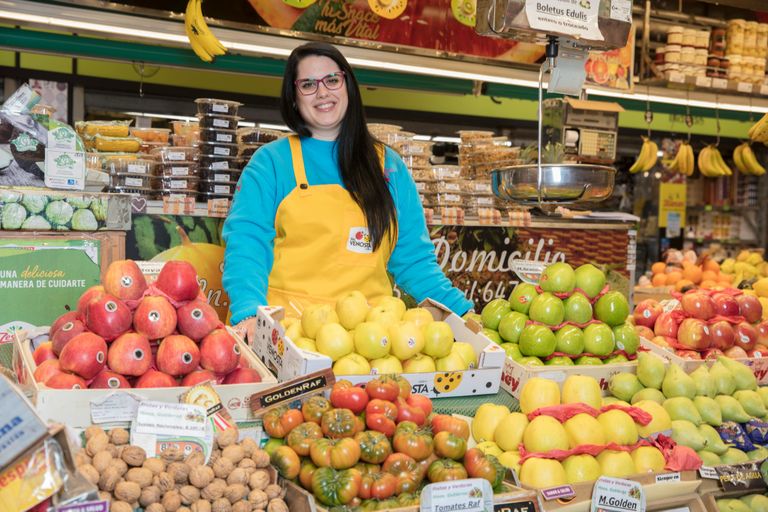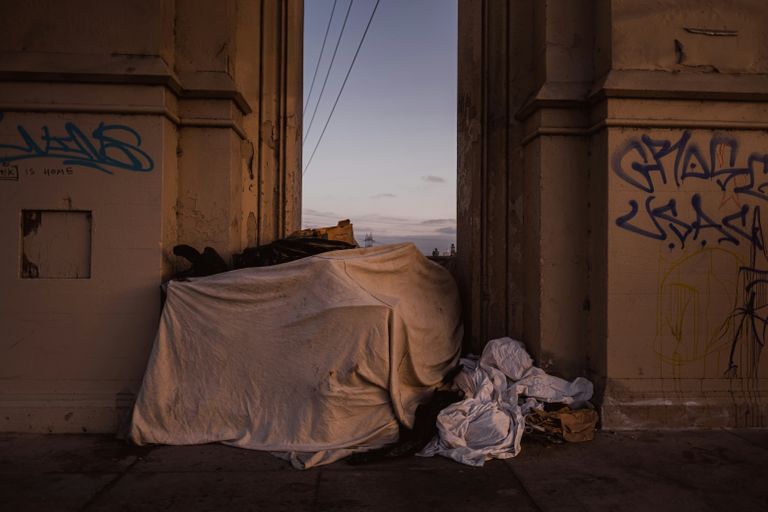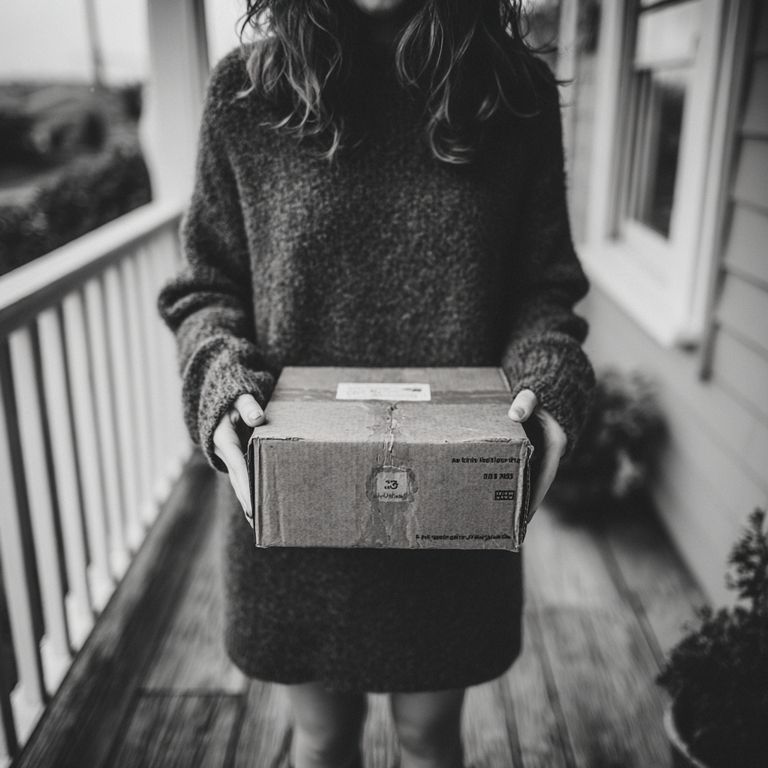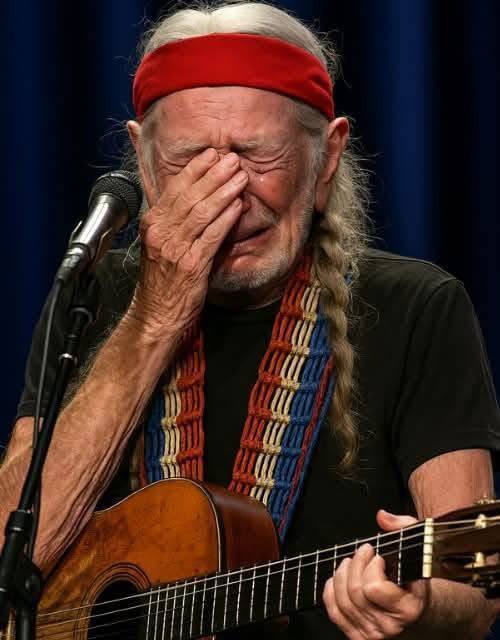It was just another shift at the grocery store when I noticed an old man in one of the aisles. I had no idea that a simple act of kindness toward him would quietly rewrite the future for me and my children.
My name is Sarah. I’m a 36-year-old mother of four young children, and I still can’t believe the way a single moment in the dairy aisle changed our entire lives. Let me tell you the story of how my act of kindness helped me escape poverty.
I used to be so happy with my late husband, Daniel, who was everything to me. He worked as a mechanic. His work entailed long hours at the shop and grease under his fingernails. But he always came home with a soft smile and enough love to fill the walls of our home.

While he went out daily to earn a living for us, I stayed home with our kids. I was responsible for raising our children, keeping the house in order, preparing and cooking meals, and tackling laundry piles taller than I was.
I also gladly attended our children’s soccer practices, helped with homework, and tucked them into bed. It wasn’t fancy, but it was beautiful. We had our comfortable roles: he was the provider; I was a homemaker.
That all changed when cancer came for him.
It came fast. The kind of fast that doesn’t let you catch your breath before you’re drowning in it. We fought hard. The chemo bills were relentless, draining every dollar we had, including our savings, his strength, and my hope.
When the money was gone, we tried selling some of his tools and even our wedding rings. But in the end, he still slipped through my fingers.
I was left alone, crushed by grief and a mountain of medical bills.
I remember standing at his funeral thinking, “How do I do this alone?”
But I couldn’t allow myself to crumble just then; I had four kids who needed me. So I sold the place where we had built so many memories. I moved us into a small rental across town.

But that was only the beginning of the major changes that lay ahead.
I didn’t have a degree or any fancy skill set to fall back on, and worse yet, I had no time to study for one. I knew I needed to care for the children and pay off the immense debt left behind, so I took the first steady job I could find.
Luck led me to a job cleaning and stocking at the local grocery store. It was nothing glamorous, but it was something I could learn to do quickly, especially with the years of experience I had doing it for my family.
The job allowed me to pay the bills, and it was honest work. It gave me enough to keep food on the table and the lights on. Every day, I swept and scrubbed and restocked with one thought in my mind that pushed me forward: my kids depend on me, and I can’t fall apart. Not now.
But something happened at work that would quietly shift the course of our lives.
It was a Tuesday morning when I saw him.

I was pushing my mop down the dairy aisle when I spotted an old man staring at the milk like it held the secrets of the universe. His coat was patched and threadbare, his shoes nearly falling apart, and in his basket was a small loaf of bread and a can of beans.
He looked so tired, and his hands trembled when he reached for a carton, then pulled back.
Something about him tugged at my heartstrings.
So, I leaned my mop against the shelf and walked up to him. “Sir, are you okay?” I asked gently.
He flinched like he hadn’t expected anyone to notice him, then offered a faint smile. “Oh, honey, I’m fine, just deciding,” he said, voice raspy but polite.
When I didn’t walk away, he continued, “I just haven’t eaten in a few days, and I’m wondering if I can afford anything else.”
My heart sank.
That served as the icebreaker we needed, and we started talking.
Something had shifted. Maybe he saw the sincerity in my face, because he started telling me about his life.
His name was Thomas. He was quiet, humble, and when I cracked a joke about how milk prices seemed to go up every week, he chuckled.
He revealed that a few years ago, he had a wife with whom he’d built a stable life. But then he lost her after a long illness. Before she died, he tried everything to continue receiving the long, expensive treatments she needed.

The poor man worked odd jobs, sold furniture, then valuables, and eventually even the house. He hoped a miracle would happen. But it didn’t. After she died, debt swallowed everything he had left.
Eventually, he drifted to the outskirts of town and built a small makeshift shelter from whatever he could salvage. He wasn’t angry or bitter—just tired and worn down in a way loneliness can carve into a person.
“I don’t need much,” he said softly. “Some days, I get by on just bread; other days, I have nothing. I drink water and pretend it’s enough.”
My heart clenched.
“People don’t see my story; they only see an old man in shabby clothes,” he added. “Hunger breaks you in a way nothing else does.”
I couldn’t walk away.
So I asked, “What would you want right now, if you could have anything?”
He hesitated. “Anything would be a blessing.”
I only had a few dollars left until payday. But something in me knew I had to help him.
I grabbed a cart and filled it with soup, meat, fruit, soap, socks, toothpaste, and a gallon of milk. Enough for several days.
At checkout, he tried to stop me. “You don’t need to do this. I’m sure you have a family of your own.”
“I do,” I said. “But you need to eat. Please let me do this.”
When I handed him the bags, his eyes filled with tears. He squeezed my hand and whispered, “You’ve reminded me I’m still human.”
That was the first and last time I saw Thomas.

Life moved on. Bills piled up. My kids grew. I kept working.
Then, five months later, there was a knock at my door.
A man in a charcoal suit stood on my porch, holding a dusty cardboard box.
“Are you Sarah?”
“Yes?”
“I am Attorney Green. I represent a late client who left this package for you. His name was Thomas.”
My heart stopped.
He handed me the box and left.
Inside was a letter addressed to me.

**Dear Sarah,**
You may not remember me, but I will never forget you. Months ago, you bought food for an old man in a torn coat in the dairy aisle. What you didn’t know was that I wasn’t truly in need. My name is Thomas, but I have more than enough, including homes, investments, and land. The ragged clothes and empty basket were part of a disguise.
The story about my wife was partially true; she did die. I was recently diagnosed with a rare disease and given months to live. I had no children or relatives I trusted, so I created the character of a homeless man to find someone worthy of my estate.
Most people turned away. You didn’t. You gave freely, even when you had so little. That moment taught me more about humanity than all my years of wealth ever did.
Enclosed are documents transferring my estate to you and your children.
With deepest gratitude,
**Thomas**
—
The box contained property deeds, investment accounts, and trust documents—all in my name.
My oldest tugged my sleeve. “Mom, what does it say?”
I laughed through tears. “It says we’re going to be okay.”
Mr. Green later explained that Thomas had returned to the grocery store looking for me. A stock boy remembered my last name. Thomas wrote it down and hired a private investigator who eventually found us.
For years, I had walked a tightrope of fear, always one bill away from disaster. I never imagined a stranger would reach across time and loss to give my children a future.
I gave him food.
He gave us hope.
That night, I hugged my children tight and told them:
“Never overlook someone just because they’re quiet or worn down. You never know who they really are.”
Thomas believed in kindness.
And now, so do I.



